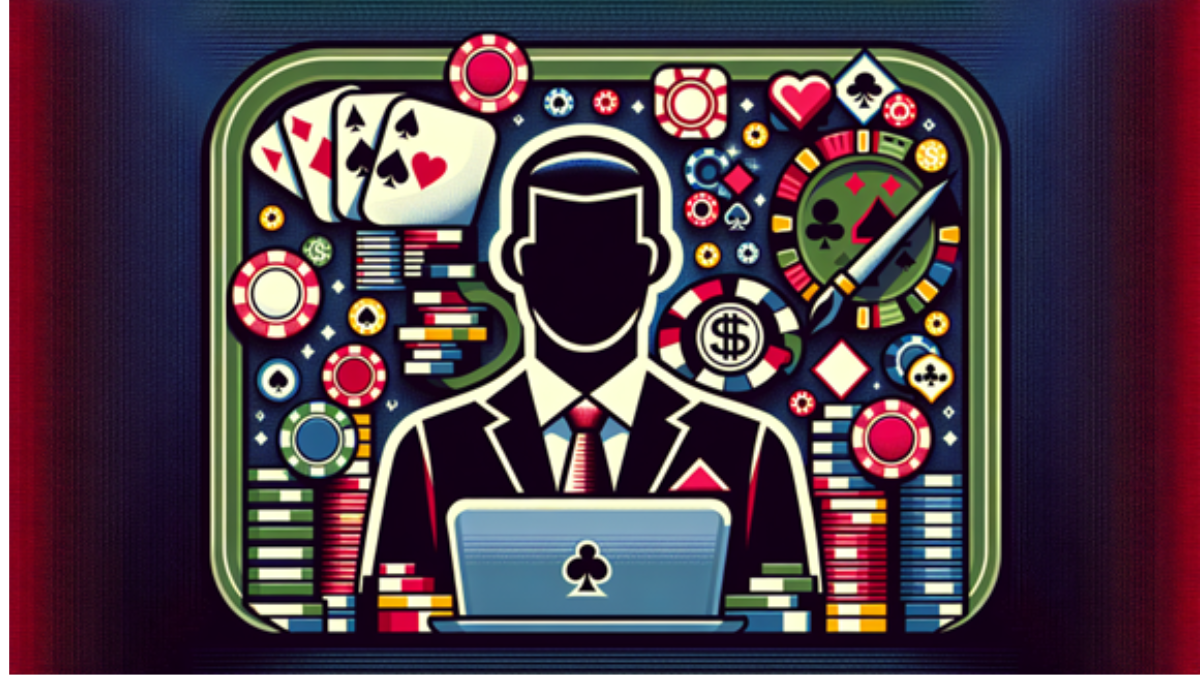'The Key Distinction Lies in the Duration of Engagement' — Andrew Shepard on the Distinction Between Traditional Live Roulette and Show-game Formats

Aug. 19 2025, Published 2:00 a.m. ET
Since 2018, the live gaming segment has undergone a noticeable shift. Whereas it used to be built around classic versions of roulette and blackjack in a studio format, the launch of Lightning Roulette changed perceptions of the genre. The multiplier mechanics and show-style presentation set a direction that other providers quickly picked up and developed. Today, players can choose between Crazy Time, Red Door Roulette, Monopoly Live, Mega Wheel, and others. These products combine gambling with elements of television shows and are gradually shaping a new standard in the industry.
In this interview, we will discuss the phenomenon of live show games with Andrew Shepard, Head of Product at Roulette77, and try to understand why this format has become one of the main trends in online casinos.
Andrew, what is the fundamental difference between traditional live roulette and show-game formats?
To put it as simply as possible, traditional live roulette is an attempt to transfer the atmosphere of a real casino online. You have the wheel, the table, and the dealer running the process. Everything is built around the classic mechanics: bet, spin, result. The strength of this format lies in the fact that players have known the rules for decades, and nothing extra is added. When we talk about show games, however, it is not only about the rules but also about how the game is presented so that it looks like complete entertainment. Here, the host is no longer in the role of a traditional dealer but more like a television presenter. He communicates with the audience, comments, and plays out emotions.
There is also an important difference in mechanics. Show games often feature additional multipliers, bonus rounds, or elements of choice. This creates the impression that each round can bring something unique, whereas in classic roulette the variety is limited by the wheel itself. This is why show games keep attention for longer: the player remains engaged even between the main outcomes, because they are waiting for surprises or bonuses.
Why did Lightning Roulette in 2018 become a turning point?
I think Lightning Roulette was the project that changed the perception of the entire category. Before it appeared, live roulette was fairly ordinary. Players came for a standard experience, and providers simply tried to transfer the casino atmosphere into a studio. Everything looked familiar and even a little predictable. Lightning Roulette introduced two key innovations: a television-show-style visual presentation and multiplier mechanics that completely transformed player expectations.
From a mechanical perspective, it was an excellent solution. The wheel and the basic rules remained the same, but each round included several random numbers with increased payouts. This changed the dynamics of the game. A straight-up bet could now bring not only the usual 35 to 1 but also payouts many times higher. Players received that element of surprise that had previously been more characteristic of slots than roulette. As a result, the product was no longer perceived simply as an online casino game but as a hybrid of entertainment and television. This proved especially important for an audience accustomed to spectacular formats and constantly looking for new experiences.
How does Crazy Time differ in mechanics and perception from multiplier roulette?
If Lightning Roulette can be called an evolution of classic roulette, then Crazy Time is a complete revolution in gaming. At its core, Lightning still relies on the familiar wheel with 37 numbers and well-known mathematics. Crazy Time, on the other hand, is almost unrelated to the traditional game. It is a giant wheel with multiple segments, a host acting as a showman, and an entire set of bonus rounds that in scale are closer to slot machines or even television quiz shows.
From a mechanical standpoint, the main difference is that Crazy Time operates on constant alternation between anticipation and surprise. The player is not just betting on a segment — they are waiting to see whether one of the bonuses will appear. And when it does, the player is transported into an entirely different environment: a mini-game with multipliers, interactive choices, and so on. As a result, each session is not just a series of spins but a sequence of events, like episodes in a show.
In the end, the key distinction lies in the duration of engagement. In roulette, even in Lightning, everything happens quickly: bet, spin, result. In Crazy Time, a player may spend several minutes in a single bonus round, watching the events unfold. This creates a completely different level of immersion.
How do providers solve the challenge of balancing gambling with television-style entertainment?
The balance is achieved because the mechanics always remain fair and transparent. At the core of any show game are the same mathematics and the same result-generation rules as in classic games. Providers clearly separate the entertainment layer from the essence: the wheel or number generator does not follow the show’s script but works according to established rules.
At the same time, without entertainment elements, such products would quickly lose their audience. This is why everything is built around the basic mechanics: hosts, studio sets, bonus rounds. The player feels the atmosphere of a show while also understanding that the outcome is still determined by chance, not by direction.
Can the success of live show games be compared to the phenomenon of TV shows like Who Wants to Be a Millionaire?
I think the comparison is absolutely appropriate. If we look at the history of television shows, especially formats like Who Wants to Be a Millionaire, Wheel of Fortune, or even classic quiz programs, they always shared one key feature — the ability to hold the audience’s attention through a combination of simple rules and emotional presentation. And this is very similar to what we see in live show games.
For the player, just like for the TV viewer, there is no need to spend much time understanding the mechanics. Everything is explained in literally one minute: place a bet on a segment, choose a number, or simply follow the spin. But then the show element comes into play: the host creates suspense, visual effects emphasize the result, and bonus rounds add the feeling of storyline development. These are the same tools that television has used for decades, only now placed in a new digital context.
I would say that live show games today play the same role as TV quizzes did in the 1990s. They are becoming a cultural phenomenon around which a community forms. Players return not only for winnings but also for the atmosphere itself, for the sense of belonging. In this sense, the online casino market has truly learned to use the principles of television to offer players broader entertainment than just gambling.
Is there a limit to innovation in roulette, or is it always possible to find a way to “refresh” the mechanics?

I believe roulette is one of the most enduring and recognizable games in gambling history. At first glance, the space for something new seems limited: the wheel, the numbers, the basic bets. Yet the experience of providers in recent years shows that boundaries are expanded precisely through creative presentation and additional mechanics.
Lightning Roulette once proved that it was possible to take the classic foundation and add multipliers. Other projects have gone further with bonus rounds, visual effects, and show elements. I would put it this way: innovation in roulette is not infinite, but the potential is still far from exhausted. Every time it seems there is nothing left to invent, a project appears that reminds us the mechanics can be refreshed if we look at roulette not only as a game but also as entertainment. For example, Fortune Roulette by Pragmatic is a good illustration of how the market continues to seek fresh ideas. It focuses not only on visuals but also on added features that give the game a sense of novelty. Such products show that even in a “closed” mechanic like roulette, there is always room for creativity.
Speaking of the phenomenon of live show games: which projects would you personally highlight as the most significant? And specifically, which roulettes with show elements have had the greatest impact?
If we talk about significant projects overall, I would highlight three key directions. The first is Lightning Roulette. It set a new standard by showing that roulette could be more than just a studio classic and become a real spectacle. The second is Crazy Time, because it was no longer an evolution of roulette but a full-fledged show with bonuses and effects that changed the audience itself. The third would be Monopoly Live, as it was the first large-scale collaboration with a recognizable brand, proving that integrating licensed formats could work in casinos just as successfully as on television.
As for the latest developments, it is worth mentioning the announcement of Money Time by Pragmatic, which is scheduled for release in September 2025. This shows that the market is still searching for new formulas and that competition in the show-game genre continues to grow. I think such projects are important because they demonstrate that the genre is not limited to a couple of big names but keeps evolving.
Regarding roulettes with show elements, apart from Lightning, I would point out Red Door Roulette. It emphasized interactivity and choice, adding an element of player participation to the familiar mechanics. Such solutions make the experience not only about watching the spin but also about feeling that your involvement matters more than usual.


